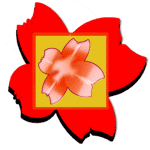On The Way: The Daily Zen Journal
Kindling the Inexhaustible Lamp
Yuanwu (1063-1135)
By even speaking a phrase to you, I have already doused you with dirty water. It would be even worse for me to put a twinkle in my eye and raise my eyebrow to you, or rap a meditation seat or hold up a whisk, or demand, “What is this?” As for shouting and hitting, it’s obvious that this is just a pile of bones on level ground.
There are also the type who don’t know good from bad and ask questions about Buddha and Dharma and Zen and the Tao. They ask to be helped, they beg to be received, they seek knowledge and sayings and theories relating to the Buddhist teaching and to transcending the world and to accommodating the world. This is washing dirt in mud and washing mud in dirt – when will they ever manage to clear it away?
Some people hear this kind of talk and jump to conclusions, claiming, “I understand!” Fundamentally there is nothing to Buddhism – it’s there in everybody. As I spend my days eating food and wearing clothes, has there ever been anything lacking?” Then they settle down in the realm of unconcerned ordinariness, far from realizing that nothing like this has ever been part of the real practice of Buddhism.
Leaving behind all leakages, day by day you get closer to the truth and more familiar with it. As you go further, you change like a panther who no longer sticks to its den – you leap out of the corral. Then you no longer doubt all the  sayings of the world’s enlightened teachers – you are like cast iron. This is precisely the time to apply effort and cultivate practice and nourish your realization.
sayings of the world’s enlightened teachers – you are like cast iron. This is precisely the time to apply effort and cultivate practice and nourish your realization.
After that you can kindle the inexhaustible Lamp and travel the unobstructed Path. You relinquish your body and your life to rescue living beings. You enable them to come out of their cages and eliminate their attachments and bonds. You cure them of the diseases of being attached to being enlightened, so that having emerged from the deep pit of liberation, they can become uncontrived, unencumbered, joyfully alive people of the Path.
So then, when you yourself have crossed over, you must not abandon the carrying out of your bodhisattva vows. Be mindful of saving all beings and steadfastly endure the attendant hardship and toil in order to serve as a boat on the ocean of all-knowledge. Only then will you have some accord with the Path.
Don’t be a brittle pillar or a feeble lamp. Don’t bat around your little clean ball of inner mystical experience. You may have understood for yourself, but what good does it do? Therefore the ancient worthies necessarily urged people to travel the one road of the bodhisattva path so they would be able to requite the unrequitable benevolence of our enlightened predecessors who communicated the Dharma to the world.
Nowadays there are many bright Zen monks in various locales who want to pass through directly. Some seek too much and want to understand easily. As soon as they know a little bit about the aim of the Path and how to proceed they immediately want to show themselves as adepts, yet they have already missed it and gone wrong. Some don’t come forth even when they are pushed to do so, but they too are not yet completely enlightened.
You are a master of Buddhist teaching methods only when you can recognize junctures of times and patterns of causal conditions and manage not to miss real teaching opportunities.
Yuanwu (1063-1135)
Excerpted from Zen Letters – Teachings of Yuanwu -Trans by J.C. Cleary and Thomas Cleary




These letters were written by the Zen teacher Yuanwu, best known as the author of The Blue Cliff Record, a collection of meditation cases with prose and verse commentary. In this collection of letters, Yuanwu offers a more direct and accessible style of learning.
There is a great deal of energy in beginning a practice and continuing, or as Dogen words it, “cultivating the mind that seeks the Way.” For years we tug the ox back and if not careful our practice becomes fixated too much on how we're doing, what we understand or don't, comparing ourselves to others in training. One aspect that saves us from too much obsession in practice is the vows of the bodhisattva to which Yuanwu alludes:
“So then, when you yourself have crossed over, you must not abandon the carrying out of your bodhisattva vows. Be mindful of saving all beings, and steadfastly endure the attendant hardship and toil….”
Compassion is at the heart of Buddhism. The Buddha saw the suffering in life and wanted to understand the nature of suffering not just to benefit himself, but to be able to help all sentient beings. Let whatever wisdom we gain in practice be always balanced by compassion for others.
Sentient beings are numberless,
I vow to save them.
Deluding passions are endless,
I vow to destroy them.
Dharma gates are manifold
I vow to enter them.
The Buddha Way is supreme,
I vow to master it.
— The Vows of a Bodhisattva
May our perfection of wisdom come through compassion!
Elana, Scribe for Daily Zen